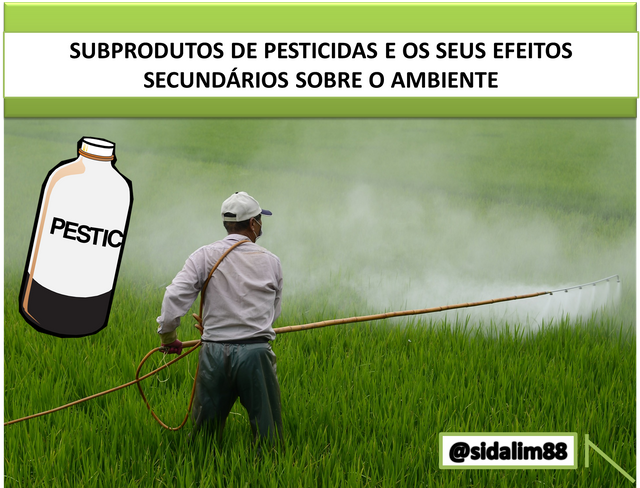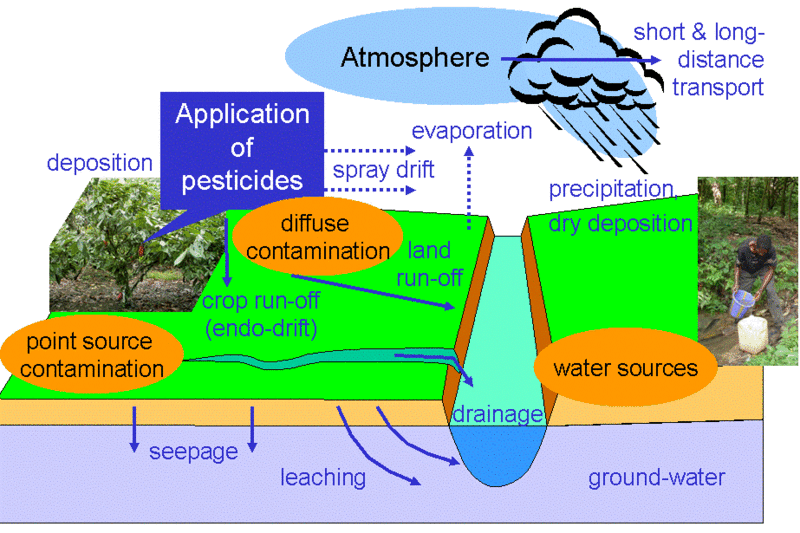
Greetings readers, this time I want to share with you a topic related to the effects that the use of fertilizers (pesticides) leaves on our mother nature. Pesticides are chemical substances used in agriculture for planting food and are responsible for killing pests, rodents, weeds, molds, among others.
Currently, the Swedish University of Agricultural Sciences together with the Environmental Diagnostic Institute are conducting research on the use of pesticides and the different derivatives they generate when they decompose in the soil. It should be noted that despite the existence of certain restrictions on the use of these pesticides in agriculture, these limitations do not include the original derivatives of these pesticides.

At the environmental level, considerable quantities of these by-products have been detected as a consequence of chemical reactions of pesticides when they come into contact with the soil, which causes certain concerns at the environmental level, since these derivatives are not supervised by the area in charge, and therefore there is a risk that they may reach the tanks where drinking water is extracted and cause adverse effects on human health..
For the development of this research, the analytical chemistry technique was used in search of the detection of the different derivatives of these pesticides even when they are in minimum concentrations in the sector, in the same way, the environmental reviews carried out by the European Programs have not been left aside.

The results obtained show that the new by-products detected are found in a higher concentration than the original products and therefore their toxicity level is higher. This confirms that these new substances are not being screened despite the strict environmental control system.
With this study it has been possible to add to the database the new by-products that are formed in the reactions that are carried out, thus facilitating their future identification in the field where they are found and thus being able to detect their harmful effects on the environment. It is important to note that this initiative should be expanded to other countries with a high level of agricultural activity, in order to prevent possible harmful effects on the environment and on health.
Although pesticides are designed to eliminate pests or other microorganisms that damage crops, in their decomposition process they generate derivatives that aggressively affect the environment, since they can reach aquifers and lakes through rainfall and river currents and affect fish and these in turn affect consumers, resulting in secondary effects on human health, either through indirect or direct intoxication.

In the case of using pesticides in aerial irrigation, they can also affect the atmosphere due to the different chemical substances that they contribute in their decomposition, in addition to those generated in the manufacturing process. These affect people and the phytotoxicity of crops.

Finally, it is important to consider whether the benefits that the use of these pesticides can bring to crops are greater than the consequences that they can have on the environment and therefore on human health.
MATERIAL CONSULTED
Ramírez Torres, Luis Antonio. Fate of pesticides in the environment. A case study for the program to support projects for innovation and improvement of teaching at UNAM. Source:


It has always been in the public domain some of the information about the use of pesticides for agriculture, and the damage it causes to food, plants and some insects, information like this is good to spread.
thank you for your information.
Downvoting a post can decrease pending rewards and make it less visible. Common reasons:
Submit
Wow, I never knew pesticide has effect on our environment and also human health, thanks for this wonderful article I have really gained some ideas
Downvoting a post can decrease pending rewards and make it less visible. Common reasons:
Submit